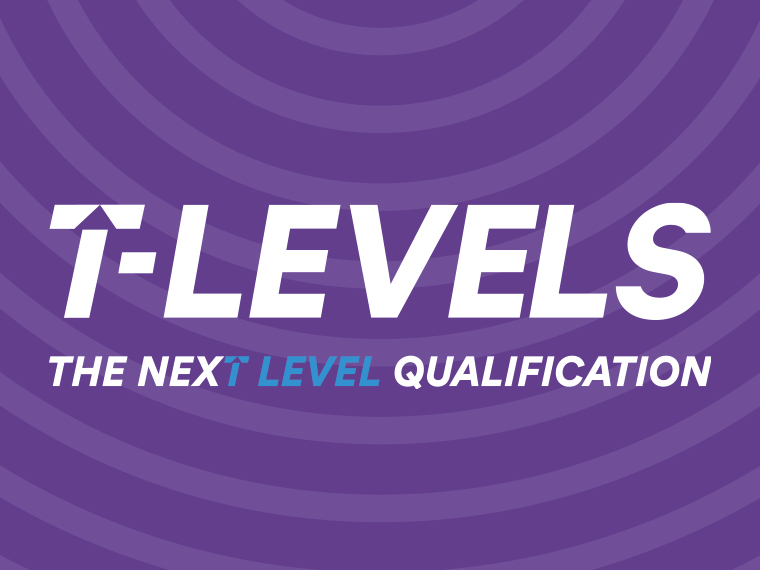
What T Levels are the RNN Group of Colleges Offering?
Over the last few months, our T Level blog has focused on aspects including the difference between T levels and vocational courses, A Levels and T Levels: which one should I choose and last month we gave you an insight into how T levels can help you.
This month, we are focusing on what T Levels RNN Group of Colleges is offering in September.
There are a number of T Level options that the RNN Group is offering at Rotherham College and North Notts College including Construction, Digital, Education and Childcare and Health.
The T level comprises of 3 key components:
- An approved technical qualification (TQ),
- A substantial industry placement with an external employer
- Employability, enrichment and pastoral (EEP) elements
Studying a T Level means that learners will be able to develop core skills such as communication, team working, reflective practice, research methods and presentation skills. Not only that, English, mathematics and digital content are embedded and contextualised within the qualification content.
The T Level in Construction comprises of two areas:
Core component:
Which provides knowledge and understanding of the key concepts, theories and principles relevant to Construction like health and safety, making accurate and appropriate measurements construction methods, relationship management and customer service, how the Internet of Things (IoT) impacts construction, digital engineering techniques, mathematical techniques to solve construction problems, the construction industry and its role in the economy and project management.
Occupational specialism component:
Surveying and Design for Construction and the Built Environment or Civil Engineering.
The T Level in Digital comprises of two areas:
Core component:
During the 2-year programme, students will learn the core knowledge and skills that are needed for entry to a range of digital occupations such as the ethical and moral implications of digital technology, using digital technologies to analyse and solve problems, emerging technical trends (Internet of Things (IoT), Artificial Intelligence (AI), Augmented Reality (AR), Blockchain, 3D printing), legal and regulatory obligations relating to digital technologies and planning digital projects.
Occupational specialism component:
In addition to the core content, each student will also develop skills in digital production, design and development. This could include: designing, implementing, and testing software; changing, maintaining and supporting software; creating solutions in a social and collaborative environment and applying ethical principles and managing risks in line with legal and regulatory requirements when developing software.
The T Level in Education and Childcare comprises of two areas:
Core component:
The core component provides a high-level foundation of knowledge and skills that are relevant to all occupational specialisms. The core component is not biased towards any occupational specialism component and could include understanding the Education and Early Years sector from ages 0 to 19, child development, how to support children and young people’s education, safeguarding, health and safety and wellbeing, understanding and managing behaviour, observing and assessing children and young people, equality and diversity, special educational needs and disability, working with parents, carers and wider families, working with agencies and services that support children, families and carers and reflective practice.
Occupational specialism component:
Early Years Educator.
The T Level in Health comprises of two areas:
Core component:
This provides knowledge and understanding of the key concepts, theories and principles relevant to working within the health and science sector. This includes: health, safety and environmental regulations, managing information and data, principles of good scientific and clinical practice, core science concepts including the structure of cells, tissues and large molecules, genetics, microbiology and immunology, understanding the healthcare sector, providing person-centred care, supporting health and wellbeing, infection prevention and control.
Occupational specialism component:
This provides knowledge skills and behaviours required to develop competencies supporting the Adult Nursing Team by assisting with clinical tasks, supporting individuals to meet activities of daily living and assist with skin integrity assessments with the care and treatment of skin conditions.
Once you have completed a T Level course, you will be able to progress onto:
- A skilled occupation
- Higher or degree level apprenticeships
- Further study including Higher Technical Qualifications or Higher Education conditions
For more information on our T Levels visit:
https://www.nnc.ac.uk/course-type/t-levels/
For more information on our Study programmes Levels 1-3 courses visit:
https://www.nnc.ac.uk/courses/
For more information on Apprenticeships:
https://www.nnc.ac.uk/courses/


